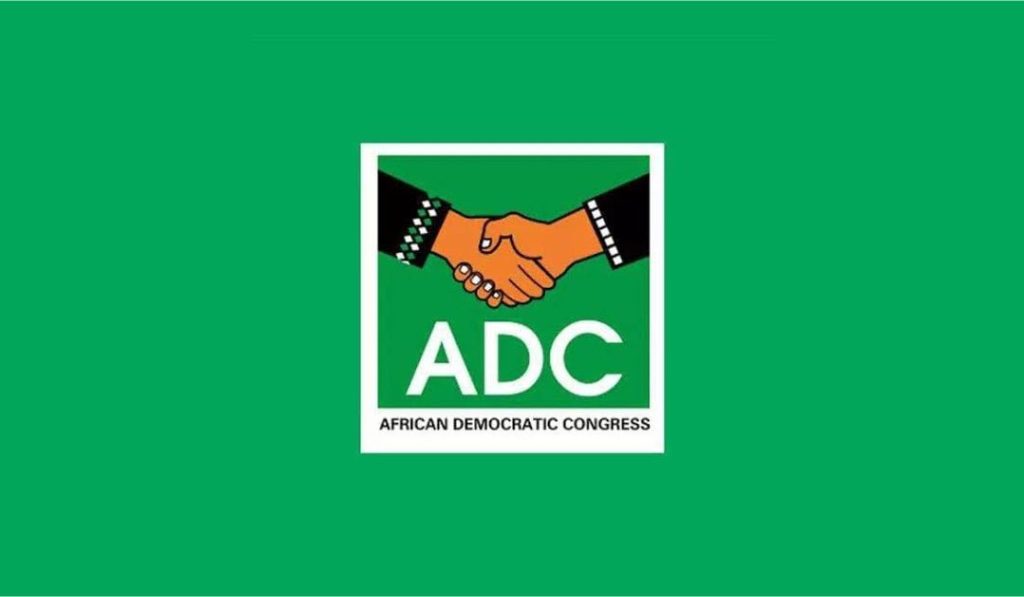The African Democratic Congress (ADC) has vehemently criticized the Kaduna State Police Command for its response to a violent disruption of the party’s inauguration event in Kaduna. The incident, which involved an attack by armed thugs on party members, has sparked a heated exchange between the ADC and the police, with the former accusing the latter of failing to protect its members and subsequently attempting to unjustly criminalize legitimate political activities. The ADC’s condemnation centers on the police’s press release, which the party describes as a blatant attempt to prejudge individuals and portray the opposition as lawless.
At the heart of the ADC’s criticism is the police’s assertion that the gathering was “unauthorized.” The party argues that the constitutional right to peaceful assembly supersedes any procedural notification to security agencies. The ADC maintains that in a democratic society, the right to assemble is guaranteed by the Constitution, not subject to the discretion of a State Police Command. This fundamental right, the party emphasizes, cannot be arbitrarily curtailed by requiring prior approval from security agencies. The ADC asserts that such a requirement would effectively grant security forces veto power over democratic processes, undermining the very foundations of a free society.
Further escalating the tension, the ADC condemned the police’s threat to hold hotels and event centers accountable for hosting political meetings without their prior approval. This, the party argues, is a clear intimidation tactic aimed at stifling political discourse and restricting the opposition’s ability to organize and mobilize. By threatening venues, the police are creating a chilling effect on freedom of assembly, making it increasingly difficult for opposition parties to exercise their democratic rights. The ADC views this as a deliberate strategy to suppress dissent and maintain the ruling party’s grip on power.
The ADC vehemently rejects any association with the violence that marred its event, emphasizing its commitment to peaceful, issue-based politics. The party demands a transparent investigation into the incident, questioning why police officers allegedly abandoned their duty to protect party leaders and members when they came under attack. The ADC insists on accountability, calling for an explanation of the police’s inaction and a thorough examination of the events leading up to the violent disruption. This demand for accountability underscores the ADC’s belief that the police’s response was not only inadequate but potentially complicit in the violence.
The ADC has broadened its criticism to encompass what it perceives as a wider pattern of intimidation against opposition parties by the ruling All Progressives Congress (APC). The party calls on all citizens to reject these growing acts of violence and intimidation, emphasizing the importance of safeguarding democratic freedoms. The ADC’s appeal to citizens highlights the party’s concern that the incident in Kaduna is not an isolated event but rather indicative of a broader trend of suppressing political dissent. This, the ADC warns, poses a serious threat to the democratic fabric of the nation.
The ADC’s strong rebuke of the Kaduna State Police Command underscores the escalating tensions between the ruling party and the opposition in the lead-up to elections. The party’s accusations of selective policing and intimidation tactics raise serious questions about the fairness and impartiality of law enforcement. The ADC’s insistence on a transparent investigation and its call for citizens to reject violence and intimidation signal its determination to defend democratic principles and hold those in power accountable. The incident in Kaduna has brought into sharp focus the challenges facing opposition parties in Nigeria and the crucial role of a free and impartial police force in ensuring a level playing field for all political actors. The ADC’s response serves as a stark reminder of the fragility of democratic institutions and the constant vigilance required to protect them.


